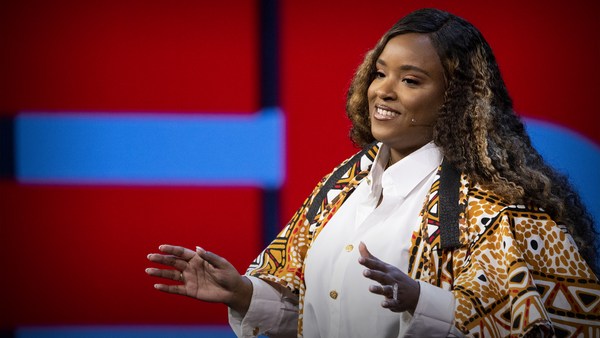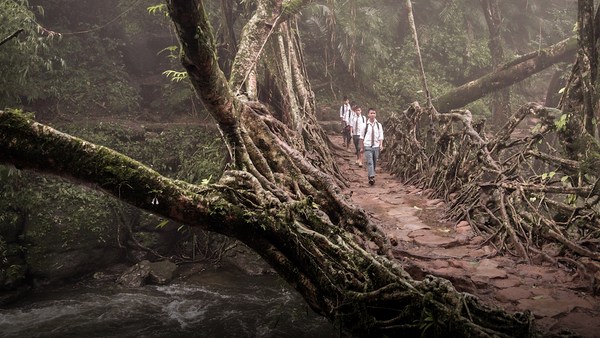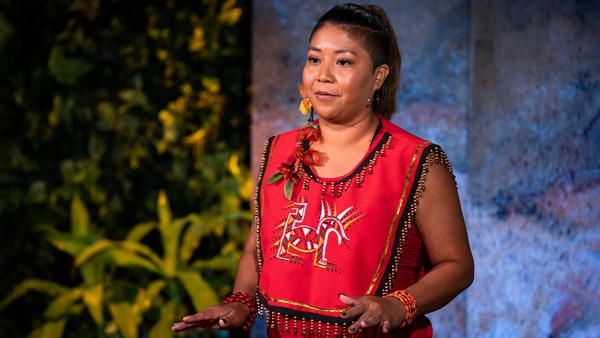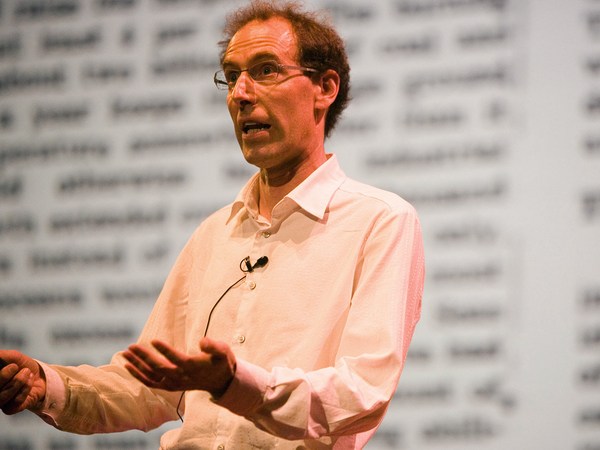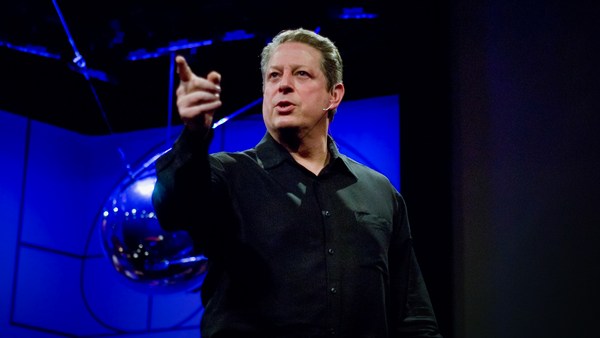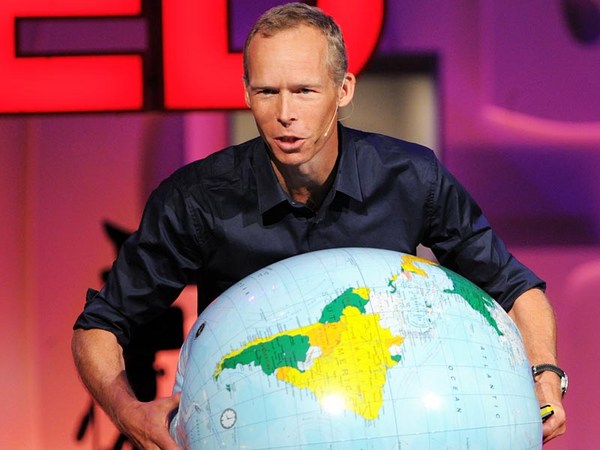I come from one of the most beautiful places in the world, Papua New Guinea. Papua New Guinea is wonderful for many reasons. Our lush vegetation, our seas, islands, lakes and forests. Also, our unique and remarkable cultural diversity. Not to forget our people. And also, not to mention our climate. It's basically 27 degrees Celsius, or 80 degrees Fahrenheit, every day, all year. We get enough rain, but not too much rain. We get enough sun, but not too much sun. And if you were to live there, you don't necessarily have to turn your heater on in the winter, or you don't have to turn your air conditioning on in the summer.
So I grew up in this paradise until I had to leave home to attain a modern education away from my home. After some years, I returned home to be with my people. I returned home importantly, to be with my people to resist against a mining company that was proposing to extract minerals in the Frieda River, which is a major tributary to the Sepik River, which is the longest river in Papua New Guinea. The Sepik River is the lifeblood and is our heritage. The people living around the area are called Sepik. Interestingly, that is our identity and our existence are intertwined with this unhurried body of water, this winding river. The Sepik is one of the last remaining intact and pristine freshwater ecosystems in the South Pacific region. It is a living memory of my ancestors who arrived on that island 50,000 years ago. Or more than that. We are the Indigenous guardians of that river, and so it is our calling to protect it from harm for our children who are yet to arrive from the future. I went home to be with my people to protect our livelihood and our heritage. But here's where the plot twists.
When I returned home, the first thing I did was I wanted to build myself a house. People in the villages understood that I was away from home for a long time, so they advised me to build a house that was made of traditional materials, using traditional knowledge and skills. Many of the houses in my village still have roof made of thatched sago leaves held together by cane vines and other renewable resources from the nearby forest. The designs continue to change over time because of climate change, but I didn’t listen to them. You see, I went to a modern school. I know more and I know better. So I built my house on high steel posts, iron roofing and all modern materials. When my house was finished, they came and told me, "You are wrong."
(Laughter)
And funny enough, they were right.
(Laughter)
So in 2021, we had unusually strong winds, and my house got blown over, so it tilted sideways. And I lost some roof. Most of the houses in the village only experienced mild effects of this wind. I was really angry I didn't listen to them.
(Laughter)
So here I was, I have to spend more money and more technology to get my house back on its post. In the same year, at the end of the year, I went for a longer holiday from the town I worked in to stay in this house that I built. During the day, I found it hard to breathe because of the heat and the humidity. So I found myself spending more time at my cousin's place whose house was built using traditionally designed materials collected from the nearby forest. So it had better ventilation, it was cooler, it was sturdier during the wind, and it allowed the sound and the smell from the river, the lake and the forest to go through. It was really pleasant.
The thing is, what I know deep down about sustainable development and about the deep wisdom of my ancestors, didn't connect with my head. I was doing what most of us do. We get educated in the modern world, modern education, and we think that, for example, climate change can only be solved by science and technology, or at least science and technology alone. Think about it. The world thrived for centuries until logging, mining and other extractive and destructive development ripped resources from the earth. And here we are, looking at experts who advised on that to advise to us about the solutions for climate change.
Maybe we need to rethink about the definition of experts. Maybe the experts are the Indigenous people who've lived lifetimes and centuries and have protected the earth and who can help heal and save it now.
(Applause)
So I learned the value of my Indigenous knowledge and traditions the hard way. And I'm not just talking about building, constructing my house, for example. We have practices we're beginning to understand that are beneficial to the environment. For instance, in my community, we have sacred places which people are prohibited to go to. Scientists are beginning to find out that these are essential breeding grounds for vital plants and animals. We have practices which prohibit certain groups of people to harvest certain plants and animals at certain times. Scientists are beginning to understand that this was our ancient way, which supported the idea of managing sustainably and harvesting resources sustainably. We're also beginning to see that, in our world, where we live, there is an emphasis on kinship, relationship and social capital which underpins an equitable and connected economy and society. Which is also the currency which my people still use today. We have spiritual practices which understand all of this and echoes the connectivity of all this life.
I don't want to stand here and romanticize about my cultural practices. I want to also acknowledge that we’ve got remarkable wonders of this world created, for example, wheel, medicine and internet and many more inventions, that have affected positively some aspects of our lives. However, I still want to believe that my Papua New Guinean cultural traditions and the Pacific’s Melanesian greater worldview, based on values such as kinship, relationships, and connectedness of all life and non-life forms, could be elevated for solutions for humanity and for the planet to thrive. I feel that many cultures and communities around the world are in such a hurry to alienate themselves from the nature and treat everything as fragmented bits and pieces that can or cannot be traded. While many Indigenous communities continue to hold and acknowledge the world as the complex web of connections in which humans, us, are only a mere part of.
We in Papua New Guinea, for example, continue to honor and acknowledge our ancestors in our present day, in different forms, and we want to remain as the best guardians for our world, for other people, and our children who are yet to arrive from future. We make these decisions because we want to protect our resources in another form, in their natural state, so that it can sustain and help us. We make this decision because this is who we are, because this has always been the way we lived. So it would be against our traditions, which I've talked about, for a company or a business to come in and rip all the resources out. We keep them in the ground so that everyone benefits and thrives.
These traditions that we have and these philosophies have guided us for 50,000 years of sustainable development and will help us in the wind of change. So here's my request to you. Stop thinking of us as underdeveloped, uneducated, uncivilized. And stop insulting our home, which are the rivers, the forests and the lakes, by saying, “these are also underdeveloped and underutilized.” In fact, our forests, for example, are the most sophisticated, efficient and effective carbon storage facility in the world, in which no amount of science and technology can beat. And our ... cultural traditions are so sophisticated, we've been able to use these to protect our forests and our resources. In fact, it's rampant consumerism, greed, imperialism, often your way of seeing the world and seeing us, that has hurt the planet. Stop doing what I did, stop thinking that the modern way of building our future is the best. It probably is a problem too.
Communities closest to the climate crisis are also communities closest to some solutions. Learn from us. Try to understand, respect and heed Indigenous guardianship. Or else, like me, the next great wind will blow us all over.
Thank you.
(Cheers and applause)
